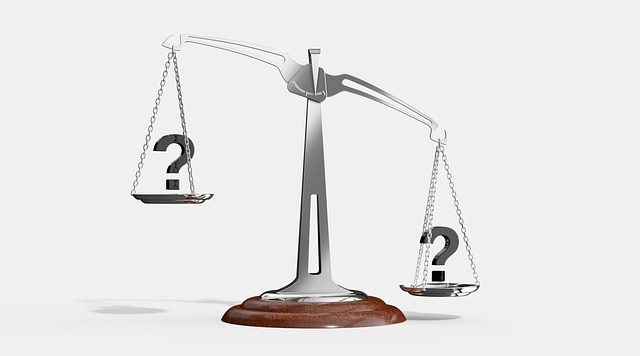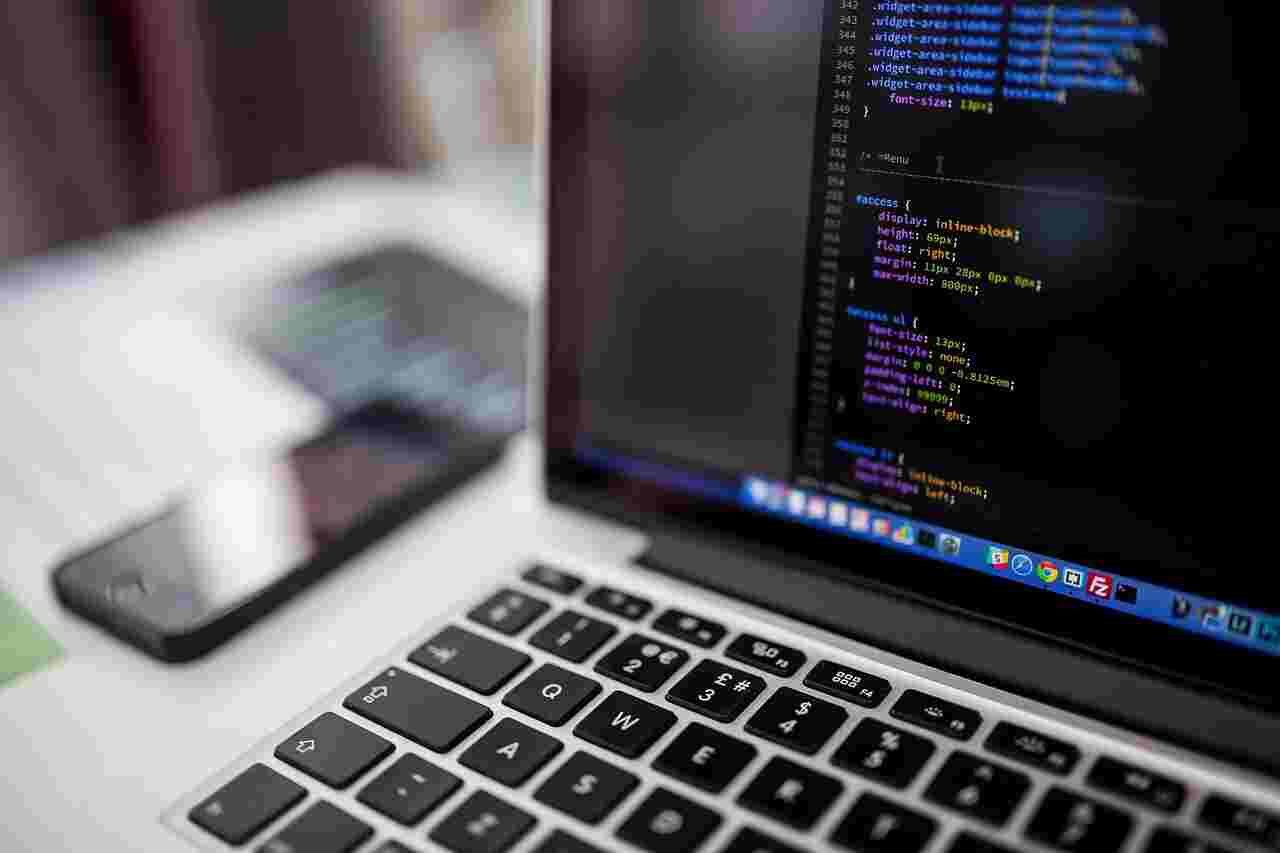Medical coding vs Medical Billing: What’s the difference?

In the healthcare industry, medical coding and medical billing are two critical processes that are essential for the smooth functioning of any healthcare facility. Despite being related to each other, medical coding and medical billing are two separate processes that serve different purposes.
In this article, we will discuss the key differences between medical coding and medical billing, and how they play a vital role in healthcare.
Definition of medical coding and medical billing
Medical coding and medical billing are two related but distinct processes that are essential to the healthcare industry.
Medical coding involves the translation of medical diagnoses and procedures into alphanumeric codes that are used for insurance reimbursement and statistical analysis. This coding system allows healthcare providers to communicate accurately with insurance companies and other healthcare stakeholders, ensuring that claims are processed correctly and that patients receive the appropriate care.
Medical billing, on the other hand, involves the process of submitting and following up on insurance claims in order to receive payment for medical services. This includes verifying patient insurance coverage, submitting claims to insurance companies, and managing any potential denials or appeals.
Together, medical coding and medical billing play a crucial role in ensuring that healthcare providers are appropriately compensated for the services they provide and that patients receive the care they need.
Importance of accurate coding and billing in healthcare
Accurate coding and billing are crucial components of the healthcare industry for several reasons:
Proper reimbursement
Accurate coding ensures that healthcare providers are properly reimbursed for the services they provide. If codes are incorrect, providers may not receive the full reimbursement they are entitled to, which can have a negative impact on their ability to provide high-quality care.
Compliance with regulations
Accurate coding and billing are essential for compliance with healthcare regulations, including those related to fraud and abuse. If coding or billing practices are not compliant, providers may face legal and financial consequences.
Data analysis
Accurate coding and billing provide valuable data that can be used to analyze healthcare trends, assess the effectiveness of treatment, and identify areas for improvement. This information can help healthcare providers improve the quality of care they provide.
Patient Satisfaction
Accurate coding and billing practices can improve patient satisfaction by reducing the likelihood of billing errors and ensuring that patients are not overcharged for services.
Overall, accurate coding and billing are critical components of the healthcare industry that ensure providers are properly reimbursed, comply with regulations, provide high-quality care, and maintain patient satisfaction.
Medical coding
Definition of medical coding
Medical coding is the process of translating medical diagnoses and procedures into alphanumeric codes that are used for insurance reimbursement and statistical analysis.
This coding system allows healthcare providers to communicate accurately with insurance companies and other healthcare stakeholders, ensuring that claims are processed correctly and that patients receive the appropriate care.
Accurate medical coding is essential for proper reimbursement, compliance with regulations, data analysis, and patient satisfaction.
Types of medical codes
There are several types of medical codes used in the healthcare industry, each with its own purpose and application:
International Classification of Diseases (ICD) codes
These codes are used to classify and report medical diagnoses and inpatient procedures. The current version is ICD-10, which includes more than 68,000 codes.
Current Procedural Terminology (CPT) codes
These codes are used to report outpatient procedures and services, such as office visits, diagnostic tests, and surgeries. CPT codes are always maintained by the American Medical Association (AMA).
Healthcare Common Procedure Coding System (HCPCS) codes
These codes are used to report services and supplies not covered by CPT codes, including durable medical equipment, prosthetics, and ambulance services.
Diagnosis-related group (DRG) codes
These codes are used for hospital inpatient billing and reimbursement. They group together similar diagnoses and treatments to determine a flat rate payment for each case.
National Drug Codes (NDC)
These codes are used to identify prescription drugs and other medical products, such as vaccines and medical devices.
Accurate use of these codes is essential for proper reimbursement, compliance with regulations, and data analysis in the healthcare industry.
Role of medical coders in healthcare
Medical coders play a crucial role in the healthcare industry by accurately translating medical diagnoses and procedures into alphanumeric codes. Their role is essential for several reasons:
Reimbursement
Medical coders ensure that healthcare providers are properly reimbursed for the services they provide. Accurate coding is necessary for insurance companies to process claims and reimburse providers for their services.
Compliance
Medical coders are responsible for ensuring that coding practices comply with healthcare regulations, such as those related to fraud and abuse. Compliance with these regulations is essential for providers to avoid legal and financial consequences.
Data Analysis
Medical coders provide valuable data that can be used to analyze healthcare trends, assess the effectiveness of treatment, and identify areas for improvement. This information helps healthcare providers improve the quality of care they provide.
Patient Safety
Medical coders are responsible for ensuring that medical records accurately reflect the diagnoses and procedures performed on patients. Accurate coding helps to reduce the risk of medical errors and improve patient safety.
Communication
Medical coders facilitate communication between healthcare providers, insurance companies, and other stakeholders. Their accurate coding ensures that everyone involved in the patient’s care has access to the same information.
Overall, medical coders are essential members of the healthcare team. Their role in accurately translating medical diagnoses and procedures into codes ensures that patients receive high-quality care, healthcare providers are properly reimbursed, and compliance with regulations is maintained.
Importance of accurate coding in healthcare
Proper medical coding is necessary for the healthcare industry because it helps ensure that healthcare providers get paid for the services they provide and that patients receive the appropriate care.
Accurate coding helps to avoid billing errors, reduces the risk of fraud and abuse, and improves patient safety by making sure that medical records reflect the diagnoses and procedures performed on patients.
Additionally, proper medical coding provides valuable data that can be used to analyze healthcare trends, assess the effectiveness of treatment, and identify areas for improvement, which helps healthcare providers improve the quality of care they provide.
Common challenges in medical coding
Medical coding can present a number of challenges, including
Complexity of Medical Terminology
Medical coding requires knowledge of complex medical terminology, which can be challenging to learn and keep up with as new terms and conditions are discovered.
Changing Regulations
Medical coding regulations are constantly changing, with new codes and guidelines being introduced regularly. Keeping up with these changes can be difficult, and failure to do so can result in errors and reimbursement issues.
Accuracy
Medical coders must be extremely accurate in their work, as even small mistakes can lead to significant financial and legal consequences for healthcare providers.
Time Constraints
Medical coders often have to work under tight deadlines, which can lead to errors and mistakes in medical coding if they are not able to work efficiently.
Software and Technology Issues
Medical coders need to be proficient in using specialized software and technology tools, which can be difficult to learn and use effectively.
Compliance
Medical coders must comply with various laws, regulations, and ethical guidelines when working with sensitive patient data, which can be challenging to navigate.
Communication with Other Healthcare Professionals
Medical coders needs to communicate effectively with other healthcare professionals, such as physicians and nurses, to ensure that they have accurate information to work with.
Quality Assurance
Medical coders must ensure that their work meets quality assurance standards, which can be challenging to maintain if there are multiple coders working on the same case.
Medical billing

Definition of medical billing
Medical billing is the process of submitting and following up on claims with health insurance companies in order to receive payment for medical services provided by healthcare providers.
It involves translating healthcare services and procedures into billing codes, submitting claims to insurance companies, and tracking the status of claims until payment is received.
Medical billing also involves working with patients to explain their insurance benefits and financial responsibilities, and resolving any billing disputes or issues that may arise. Accurate and timely medical billing is essential for healthcare providers to receive proper reimbursement for their services and for patients to avoid unnecessary financial burdens.
Steps involved in medical billing
Here are the general steps involved in medical billing:
Patient Registration
The first step in medical billing is registering the patient’s information, such as their name, address, insurance information, and medical history.
Verification of insurance
The medical billing staff verifies the patient’s insurance eligibility and coverage for the services being provided.
Coding
The healthcare provider assigns a medical code to the services rendered to the patient using the International Classification of Diseases (ICD) and Current Procedural Terminology (CPT) codes.
Billing
The billing staff creates a claim with the medical codes and submits it to the insurance company.
Adjudication
The insurance company reviews the claim to determine the coverage and the amount to be paid.
Payment
The insurance company pays the healthcare provider the amount owed, and the healthcare provider bills the patient for any remaining balance not covered by insurance.
Follow-up
If the claim is denied or rejected, the billing staff follows up with the insurance company to resolve any issues.
Appeal
If the claim is still not paid, the billing staff may file an appeal with the insurance company or seek assistance from the patient to resolve the issue.
These steps may vary depending on the specific requirements of the healthcare provider and the insurance company.
Role of medical billers in healthcare
Medical billers play a crucial role in the healthcare industry by ensuring that healthcare providers are properly reimbursed for the services they provide to patients. They are responsible for translating medical procedures, treatments, and diagnoses into billing codes that insurance companies and other payers can understand and process.
In addition to translating medical information into billing codes, medical billers also verify patients’ insurance coverage, process claims, and follow up with insurance companies to ensure that payments are made in a timely manner. They may also work with patients to arrange payment plans or to answer questions about billing and insurance coverage.
Without skilled medical billers, healthcare providers would struggle to receive payment for their services, and patients could face challenges in understanding their medical bills and paying for the care they need.
Thus, medical billers are an important part of the healthcare team, working behind the scenes to ensure that healthcare providers and patients can focus on what matters most: delivering and receiving high-quality medical care.
Importance of accurate billing in a healthcare
Accurate billing is extremely important in healthcare for several reasons. First and foremost, accurate billing ensures that healthcare providers receive proper reimbursement for the services they provide. This is essential for the financial viability of healthcare facilities and for ensuring that patients have access to high-quality care.
Accurate billing also helps to prevent fraud and abuse in the healthcare system. When billing is inaccurate or fraudulent, it can result in unnecessary costs for patients and payers and can undermine the integrity of the healthcare system as a whole.
In addition, accurate billing is important for patients, as it helps them understand the costs associated with their healthcare and make informed decisions about their care. When billing is inaccurate or confusing, it can lead to frustration and confusion for patients, and can even result in patients foregoing necessary medical care due to concerns about cost.
Overall, accurate billing is essential for the financial health of healthcare providers, the integrity of the healthcare system, and the well-being of patients. Medical billers play a crucial role in ensuring that billing is accurate and timely, and in communicating with patients and payers to resolve any billing issues that arise.
Common challenges in medical billing
Medical billing can be a complex and challenging process, with a number of potential pitfalls that can lead to errors, delays, or denials. Some common risks and challenges in medical billing include:
Insurance eligibility and coverage issues
Medical billers need to verify patients’ insurance coverage and eligibility before submitting claims to insurance companies. However, insurance coverage can be complicated, with different plans having different coverage rules and limitations.
Coding errors
Medical billing codes are used to describe medical procedures, diagnoses, and treatments. If codes are entered incorrectly or are not updated, it can result in claim denials or delays in payment.
Documentation issues
Accurate medical billing requires complete and detailed documentation of all medical services provided to a patient. However, incomplete or inadequate documentation can lead to errors or claim denials.
Timeliness
Medical billing must be done in a timely manner, with claims submitted within specified timeframes. Failure to meet these deadlines can result in claim denials or delays in payment.
Denials and appeals
Insurance companies may deny claims for a variety of reasons, including coding errors, documentation issues, or lack of coverage. Medical billers need to be prepared to appeal denied claims and work with insurance companies to resolve any issues.
Changing regulations
Medical billing regulations and requirements can change frequently, requiring medical billers to stay up-to-date on changes and adjust their practices accordingly.
Overall, medical billing can be a complex and challenging process, requiring attention to detail, strong communication skills, and a deep understanding of the healthcare industry and insurance system.
Differences between medical coding and medical billing

Medical coding and medical billing are two distinct but closely related processes in the healthcare industry.
Medical coding involves the process of translating medical procedures, diagnoses, and treatments into standardized codes that can be understood by insurance companies and other payers. These codes are used to communicate the details of medical services provided to patients, and are essential for accurate billing and reimbursement.
Medical billing, on the other hand, involves the process of submitting claims to insurance companies and other payers for payment for medical services provided to patients. Medical billers use the codes generated by medical coders to create claims that accurately reflect the medical services provided, including the associated costs.
In other words, medical coding is the process of translating medical information into codes, while medical billing is the process of using those codes to create claims for payment.
Medical coding and billing often go hand-in-hand, with medical coders and billers working closely together to ensure that claims are accurate, complete, and submitted in a timely manner. However, they require different skill sets and expertise.
Medical coders need to have a deep understanding of medical terminology and coding systems, while medical billers need to have a strong grasp of insurance regulations and payment processes.
Overall, while medical coding and medical billing are distinct processes, they are both critical components of the healthcare industry, ensuring that patients receive the care they need and that healthcare providers are properly reimbursed for their services.
Comparison chart
| Medical Coding | Medical Billing |
| Involves the process of translating medical procedures, diagnoses, and treatments into standardized codes | Involves the process of submitting claims to insurance companies and other payers for payment of medical services provided to patients |
| Codes are used to communicate the details of medical services provided to patients | Claims are used to communicate the costs associated with medical services provided to patients |
| Ensures that medical services are accurately and comprehensively documented | Ensures that medical services are properly billed and reimbursed |
| Requires a deep understanding of medical terminology and coding systems | Requires a strong grasp of insurance regulations and payment processes |
| Involves the use of coding manuals and software to select the appropriate codes for each medical service provided | Involves the use of billing software to create and submit claims to insurance companies and other payers |
| Helps to ensure accurate billing and reimbursement | Helps to ensure timely payment for medical services |
| Medical coders may work in healthcare facilities, as insurance companies, or as independent contractors | Medical billers may work in healthcare facilities, as insurance companies, or as independent contractors |
Conclusion
Medical coding and medical billing are two critical processes in the healthcare industry, they serve different purposes and require different skill sets.
Medical coding is the process of translating medical procedures and diagnoses into universally recognized codes, while medical billing is the process of submitting claims to insurance companies and patients for payment.
Understanding the key differences between medical coding and medical billing can help healthcare facilities ensure accurate and efficient communication with insurance companies and patients, as well as timely payment for services rendered.





